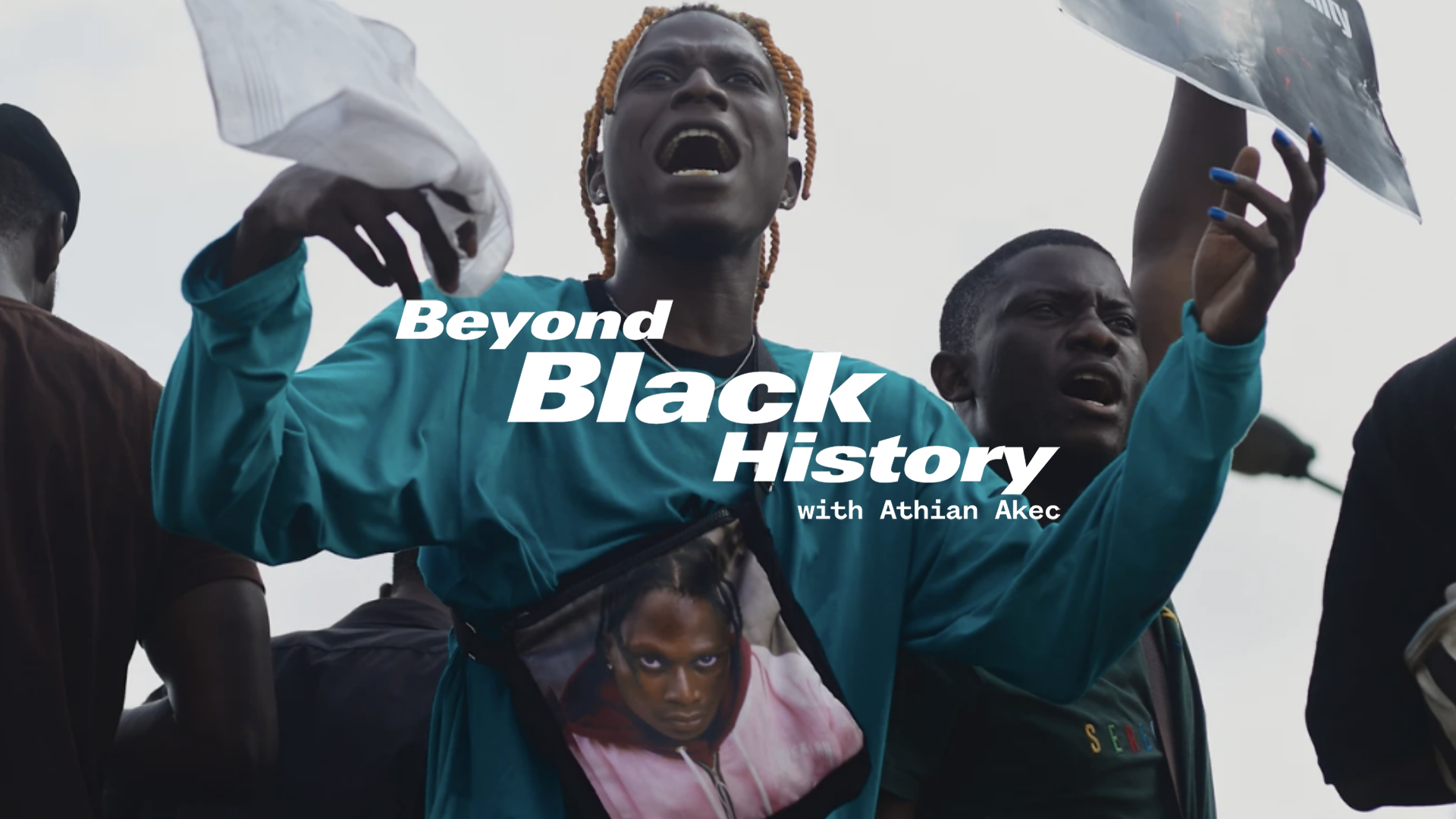This article is part of a series by Athian Akec: Beyond Black History Month.
Globally, the voices of young Black people are so often drowned out in journalism, politics, and publishing. Rarely are our realities, truths, and stories given the attention they should. In response to this, from the continent of Africa and the Caribbean to the diaspora across the world, we resist this exclusion through the relentless production of culture. Humans are inherently driven to express themselves through art, but young Black people across the world feel the need to express our pain and joy more intensely than most — so loud that the world has no choice but to hear, no matter how hard it tries to ignore us.
As a generation of Black youth, we can use art as a tool for archiving and liberation, from the art produced in the wake of the #ENDSARS movement as a form of community healing to seminal albums like Dave’s Psychodrama and J Hus’s Big Conspiracy that challenge the dominant conversations around violent crime in the Black community. This documentation of our existence, for all its turbulence and calm, is important. It allows future generations a chance to fully appreciate what the future can be through a crystal-clear understanding of all that has been. This is something my generation has been deprived of; an erasure of Black people in systems of archiving that have historically been kept for white male figures.
Black art forms have origins everywhere, from inner-city London to Lagos, but research conducted has found that many fields remain largely unrepresentative of this creativity. A study from 2019 found that only 2% of authors and illustrators in the UK were Black. A 2015 study found that just 0.2% of British journalists were Black. On top of that, TV commissioners have been reluctant to commission stories from and about non-white talent. The barriers that exist are immense, but art is often a means for young people who are marginalised from organised systems to find expression. It’s easy to keep narratives that maintain the status quo but harder to stop young people from producing creative work that challenges them.
This lack of ability to fully appreciate the past — and a curriculum in which only 11% of secondary students in 2019 were studying history that made any reference to the contributions of Black people — damages the way that we collectively view the world, even if we do not always have the language to articulate it. From understanding how British colonialism planted the roots of instability in present-day Nigeria to how the writing of the US constitution ties into the mass incarceration of African American communities, this history is important. Yet there are so many stories of joy, resistance, and outstanding contributions to human knowledge that we never encounter in or outside the classroom. I often ask myself how we would move in the world – what could we build or change – if we knew all this history? How is this generation of young Black people archiving our history, and how will we be remembered? To me, art could be the most powerful tool in archiving these experiences.
As young Black people, so many biased, distorted depictions dominate the media landscape. We are presented as reckless, violent, and ignorant. Stereotypes have been perpetuated by systems of injustice as a kind of crude justification for our mistreatment. That’s why it is particularly important that we actively think and start working towards ensuring that future generations of young Black people get a crystal-clear view of our present-day conditions. In recognising how much society could benefit from a greater awareness of Black history, we have to see this as a moment of opportunity to give future generations the tools to build better futures through a transparent archive of ups and downs, highs and lows, challenges, and successes of our existence today.
The systems of power that dominate and run the societies we live in are often working against our interests, and art is the means by which we can fight back and counter the narratives forward. Poetry, film, music, dance, theatre — whatever the medium, art has the capacity to express what we feel but don’t have the vocabulary to say. Through this, we can archive our joys and pains, triumphs and failures, best days and worst ones. This will open the eyes of future generations of young Black people to the lives we lived, the problems we faced, and how we resisted. This art does not have to be exceptional nor revered by award academies. It can’t only capture us during our most political moments of activism or only capture us basking in enjoyment — for these moments are not who we truly are and don’t demonstrate the complexity of our lives.
In sum, MAKE ART NOW!


